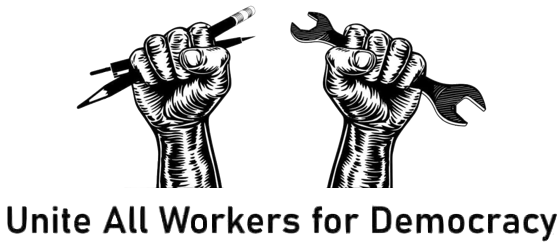Stephen Franklin writes for In These Times:
The recently elected heads of those two unions proclaimed unprecedented and seemingly risky contract demands because they had pitched themselves to their rank and file as new voices that would shake up their unions. This was more true for [Shawn] Fain, a one-time electrician and union official from Kokomo, Ind., who benefited from the surge of support for an insurgent movement within the union, Unite All Workers for Democracy, the first movement ever to dislodge the one-party rule that ran the UAW for more than 70 years.
O’Brien was less of an outsider since he was once a top national leader within the union. But he broke with former Teamster President James P. Hoffa in 2017 and sought support from the TDU for a dissident slate, winning election in 2021. (The TDU is a survivor from the days when reform movements sprouted prominently within U.S. unions.)
Fain also broke UAW tradition by bargaining with all of Detroit’s Big Three at the same time and called for surprise strikes at key facilities to apply the greatest pressure. The UAW used to pick an individual bargaining target, secure a deal and then apply it to the others. The rank and file recently voted to ratify the contracts the UAW secured.
Read more in In These Times.

